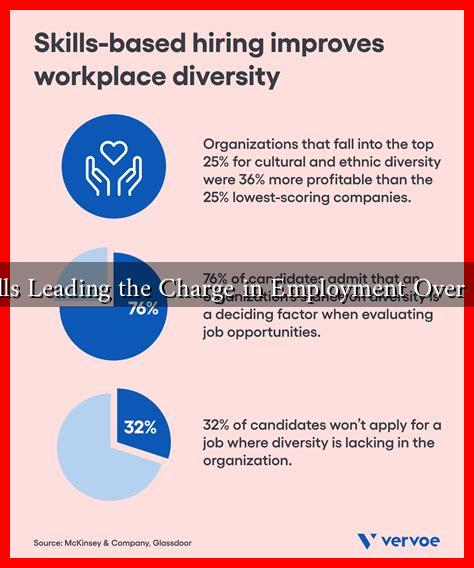-
Table of Contents
Are Skills Leading the Charge in Employment Over Degrees?
In recent years, the employment landscape has undergone a significant transformation. As industries evolve and technology advances, the debate over the value of traditional degrees versus practical skills has intensified. Employers are increasingly prioritizing skills over formal education, leading to a shift in how job seekers approach their careers. This article explores the growing trend of skills-based hiring, its implications for the workforce, and what it means for the future of education.
The Shift Towards Skills-Based Hiring
Historically, a college degree was seen as a ticket to employment, often serving as a minimum requirement for many positions. However, a growing number of employers are now recognizing that skills and experience can be more indicative of a candidate’s potential than their educational background. This shift is driven by several factors:
- Technological Advancements: The rapid pace of technological change means that specific skills can become outdated quickly. Employers are looking for candidates who can adapt and learn new skills on the job.
- Talent Shortages: Many industries are facing talent shortages, prompting employers to broaden their search criteria. This includes considering candidates without traditional degrees but with relevant skills and experience.
- Changing Workforce Demographics: As younger generations enter the workforce, they often prioritize skills development and practical experience over formal education.
Real-World Examples of Skills Over Degrees
Several companies have embraced skills-based hiring practices, demonstrating the effectiveness of this approach:
- Google: In 2019, Google announced that it would no longer require a college degree for many of its job openings. Instead, the tech giant focuses on candidates’ skills and experience, particularly in areas like coding and data analysis.
- IBM: IBM has also shifted its hiring practices, emphasizing skills over degrees. The company has launched initiatives to train individuals in technology-related fields, allowing them to gain the necessary skills without a traditional degree.
- Apple: Apple has been known to hire individuals based on their skills and experience rather than their educational background. The company values practical knowledge and problem-solving abilities, which are often more relevant to the job than a degree.
The Role of Alternative Education
As the demand for skills increases, alternative education pathways are gaining popularity. Bootcamps, online courses, and vocational training programs are providing individuals with the skills they need to succeed in the job market. For instance:
- Coding Bootcamps: Programs like General Assembly and Le Wagon offer intensive training in coding and web development, often leading to job placements in tech companies.
- Online Learning Platforms: Websites like Coursera and Udacity provide access to courses from top universities and industry leaders, allowing individuals to learn at their own pace and gain certifications in various fields.
- Apprenticeships: Many industries, such as manufacturing and healthcare, are increasingly offering apprenticeship programs that combine on-the-job training with classroom instruction.
Statistics Supporting the Skills Revolution
Several studies highlight the growing importance of skills in the hiring process:
- A 2020 report by the World Economic Forum indicated that 94% of business leaders expect employees to pick up new skills on the job.
- According to LinkedIn’s 2021 Workforce Learning Report, 79% of talent developers believe that skills-based hiring will become the norm in the next few years.
- A survey by McKinsey found that 87% of executives reported a skills gap in their organizations, emphasizing the need for a workforce equipped with relevant skills.
Conclusion: The Future of Employment
The shift towards skills-based hiring is reshaping the employment landscape, offering new opportunities for job seekers and challenging traditional notions of education. As employers increasingly prioritize skills over degrees, individuals must adapt by seeking out alternative education pathways and continuously developing their skill sets. This trend not only benefits employers by providing them with a more capable workforce but also empowers individuals to take control of their career trajectories. In a world where skills are leading the charge, the future of employment looks promising for those willing to learn and grow.
For more insights on the evolving job market and skills development, visit Forbes.

